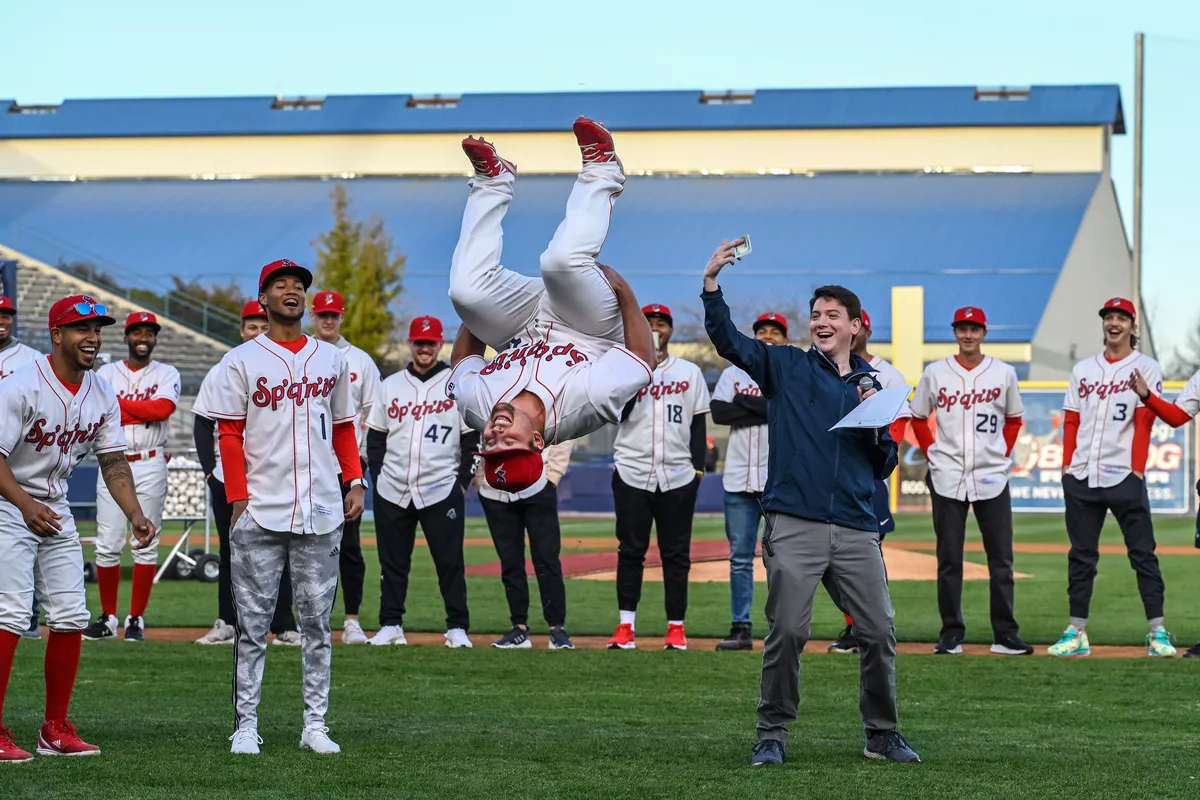Ballpark figures: Spokane County says it will pay up to $8 million for Avista Stadium upgrades

Spokane County is willing to contribute $8 million to upgrade Avista Stadium, but the Spokane Indians will have to find another $14 million needed to improve the ballpark for fans and bring it into compliance with new Major League Baseball requirements.
On Tuesday, Spokane County commissioners passed a resolution that defines how much they’re willing to pay to upgrade Avista Stadium, the county-owned venue that serves as the Indians’ home field. Commissioners Josh Kerns and Al French voted in favor of the resolution. Commissioner Mary Kuney was out of town on county business and unable to vote.
The resolution was not included on the commissioners’ agenda, the document that allows the public to know what the commissioners will discuss and vote on during meetings.
Under the terms of the resolution, Spokane County will fund up to $8 million in stadium upgrades so long as the Indians can convince other jurisdictions and private entities to match those dollars. For example, if the Indians raised $3 million, the county would only contribute $3 million.
The resolution comes with several other stipulations.
In order to receive county funding, the team must cover the cost of all future Avista Stadium maintenance and pay an annual lease of $100,000 or more. The Indians currently pay the county about $25,000 annually.
On top of new maintenance and lease conditions, the county is demanding a percentage of the Indians’ revenues, including ticket, merchandise and concessions sales. French said the county and Indians will figure out a percentage during the next round of lease negotiations.
It’s unclear if the Indians completely agree with the resolution’s terms.
In a text, Spokane Indians President Chris Duff said the team appreciates that the county is showing a commitment to keeping a professional baseball team in Spokane.
“We look forward to connecting to work out the details on the future of the stadium and the team,” Duff wrote. “I am confident we will get to a place that is beneficial to both parties.”
If Avista Stadium doesn’t receive major upgrades, Spokane will almost certainly lose MLB-affiliated professional baseball. The Spokane Indians play in the High-A Northwest League as an affiliate of the Colorado Rockies. Major League Baseball is requiring its minor league affiliates to improve their facilities, primarily for the benefit of players.
Some newer fields only need minor changes, but 64-year-old Avista Stadium will require a major overhaul to comply with MLB’s new standards. Among other mandated upgrades, the ballpark needs a new field surface and new lights, locker rooms and batting cages.
From an athlete’s perspective, many of the Spokane Indians’ facilities are woefully inadequate. For instance, players – some of whom have signed multi-million dollar contracts to play professional baseball – have to train in a roughly 600 square-foot weight room with less equipment than a high school gym.
Bringing Avista Stadium into compliance with MLB’s new requirements will cost a bare minimum of $16 million, according to a study by ALSC Architects. The Indians also want to enhance the stadium for fans, bringing the total cost to $22 million. A new scoreboard and outfield concourse are among the amenities the Indians could add for spectators’ benefit.
The Indians and Spokane County first began negotiations a year ago. They’ve considered different ways to fund the upgrades, including a voter-approved property tax increase.
If the county refuses to budge from the terms outlined in its resolution, the Indians will have to find money elsewhere.
Duff has said the team and 10 other professional and amateur Washington ballclubs plan to lobby the Legislature for stadium funding in January. The Indians hope to secure about $5.8 million from the state.
The team says it could contribute $2 million, which leaves a $6 million shortfall. French said Spokane Valley, Spokane and private businesses could chip in.
“It could come from a variety of different sources; that’s for them to figure out,” he said.
The county’s resolution may not end up being the final offer. While Duff has repeatedly stated the Indians have no intention of leaving Spokane, the team may have more leverage in the negotiations than it appears.
It’s not uncommon for professional sports teams to relocate if they can find better financial opportunities in a new city. Teams leave due to stadium disagreements fairly often – the Las Vegas Raiders left Oakland three years ago, in large part because of an impasse between the owner and the city.
Regardless of how negotiations between the county and Indians progress, the clock is ticking. Avista Stadium needs to meet MLB regulations before the start of the 2025 season.
Editor’s note: This story was updated on Dec. 15, 2022, to reflect the correct timeline for improvements. The work must be done by the 2025 season.